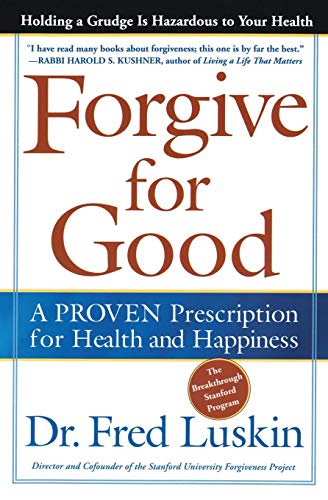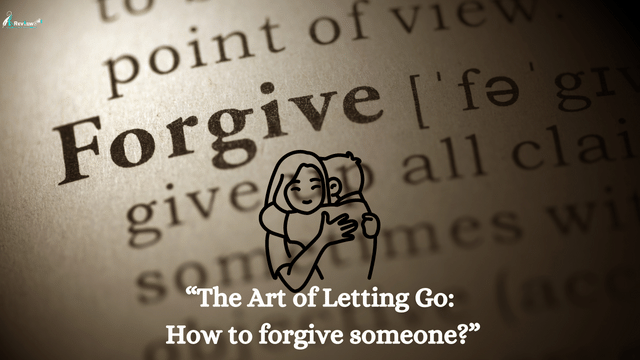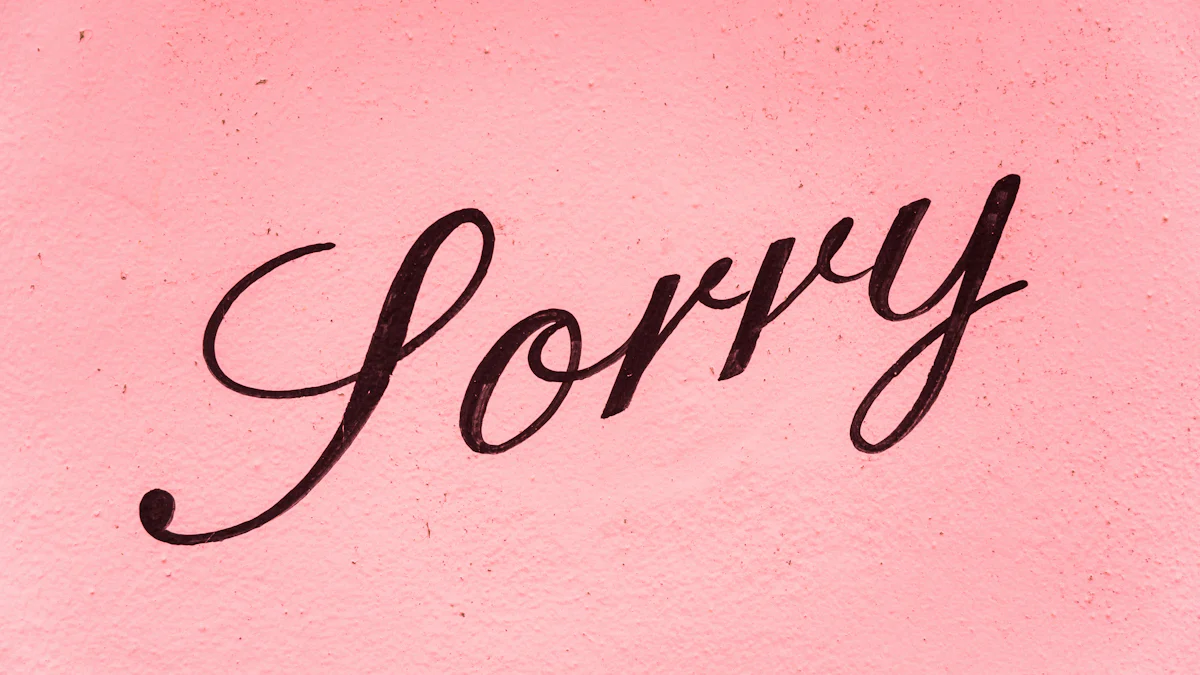Do you know someone who has hurt you deeply? Or maybe someone you’ve wronged has hurt you back. Now you’ve got to let go of this bitterness. In this article, we learned about 10 Simple Steps to Forgive People & Move On.
What Does It Really Mean to Forgive Someone?
Forgiveness is a complex process, and it can often be difficult to forgive someone. To forgive someone does not mean that you condone the wrong or have forgotten about it; rather, it means that you can move past the resentment and pain associated with the event to make peace with what happened. Forgiveness is an emotional process that involves letting go of negative feelings towards the offender, recognizing the wrong they committed, and having the ability to accept their actions without feeling resentment. It requires making a conscious decision to choose forgiveness over revenge and anger. To truly forgive someone means being able to think of them without bitterness or understanding that everyone makes mistakes. Ultimately, forgiveness is something only you can do for yourself; it is a choice and nobody can force you into making it.
Can You Learn to Be More Forgiving?
Forgiveness is an important part of growth and relationships. It’s hard to forgive someone who has done wrong, but it is possible to learn how to be more forgiving. Forgiveness can help reduce resentment and negative feelings towards the person who has wronged you. It can also create a better understanding between both parties. Learning to forgive requires practice and patience. Start by recognizing that no one is perfect, and mistakes are inevitable. Acknowledge the hurt or anger you feel and try to find empathy for the person who wronged you instead of focusing on their faults. Remember that forgiveness does not mean condoning their actions, but it’s about releasing your pain and resentments. With time and practice, you can learn to be more forgiving and create healthier relationships with others in your life.

What Are the Steps to True Forgiveness?
Forgiveness is a powerful act that can help bring healing and peace to those who have been wronged. The process of forgiveness begins with wanting to forgive the person who has done wrong. It is important to recognize that forgiving this person does not mean condoning their behavior, but understanding that they are human as well. To truly forgive someone, one must go through a forgiveness process. This involves releasing any anger or resentment towards the person, accepting what has happened in the past, and moving forward without lingering feelings of animosity. Forgiveness also means allowing yourself to let go of the pain and suffering caused by the situation. Through this process, it will become easier to find compassion for the person who wronged you and accept them for who they are. True forgiveness requires patience and time, but it ultimately helps restore relationships and brings peace within ourselves as well.
Why Should I Forgive Someone Who Hasn’t Asked for Forgiveness and Never Will?
Forgiveness is a personal decision that can have a powerful impact on your well-being and happiness. It does not require the other person to ask for forgiveness or even to know that you are forgiving them. Instead, forgiveness is about letting go of anger, resentment, and other negative feelings towards someone who has caused you harm, and choosing to move forward positively.
Forgiveness is not about condoning or minimizing the hurt that someone has caused you. It is not about forgetting what happened or pretending that it never occurred. Instead, forgiveness is about acknowledging the pain and hurt that you have experienced and letting go of those negative feelings so that you can move on with your life.
Forgiveness can be difficult, especially when the person who has harmed you is not willing to take responsibility or acknowledge the harm that they have caused. However, forgiveness can be an important step in the healing process and can help you feel more at peace and to let go of any lingering resentment or anger. Ultimately, the decision to forgive is up to you and what you feel is best for your well-being.
| Service | Main Features | Score | |
|---|---|---|---|
1 Badge | FORGIVE FOR GOOD
|  PriceRead Full Review PriceRead Full Review |
Common Myths About Forgiveness:
Forgiveness is an essential part of life, but it’s often misunderstood. One common myth about forgiveness is that if you forgive someone, you’re condoning the wrong they did. This isn’t true–forgiveness is a choice to move on from the hurt and pain caused by another person. It doesn’t mean everything is forgotten or excused; it means you choose to focus on healing rather than continuing to be hurt by the offender. Another myth is that forgiving someone means forgetting what happened entirely–but this isn’t true either. You can remember what happened without letting it dictate your emotions and reactions. Learning how to truly forgive may take time, but it’s possible to let go of negative emotions and move past the hurt to live a healthier life. Forgiveness doesn’t always come easy, but with practice, it can be done and will bring great relief.

When Forgiveness May Not Be an Option, plus, What to Do Instead?
Forgiveness may not always be an option, especially where a wrong was done that cannot be undone. In these situations, it is important to acknowledge the pain and negative emotions you are feeling without attempting to forgive, as this can lead to further hurt. Instead of forgiveness, it is more productive to focus on self-care and cope with the emotions that arise. This could involve talking to friends or family members about what happened, writing your thoughts and feelings, or seeking professional help if needed. Taking care of yourself is paramount in these situations to move forward and grow from the experience instead of remaining stuck in resentment or anger towards the person who wronged you.
Forgive Yourself First:
Forgive Yourself First. It is influential to forgive yourself for any wrongs that you may have committed, even if it feels hard to do. It can be very difficult to forgive someone else if you are struggling to forgive yourself first. You need to forgive yourself before you can truly forgive others and find the peace of mind that comes from true forgiveness. Forgiveness is a powerful act, but it’s hard to do when you are experiencing potent emotions or anger towards someone. Taking the time to work through your emotions and forgiving yourself can help you move forward in life and eventually allow you to forgive someone else. Showing forgiveness to others is an important part of being kind and loving, but it all begins with forgiving yourself first.

How to Forgive and Move Forward?
Forgiveness is a powerful tool that can help us move forward and heal. When we have been wronged by someone, it’s hard to forgive them, but letting go of resentment and hurtful feelings can be liberating. If you want to forgive someone who has hurt you or someone you love, it’s essential to take the time to let go of the anger and learn how to forgive. Once you have forgiven the person who hurt you, it will be easier for you to move past the experience and focus on your own healing process. It’s difficult to forgive those who have wronged us, but it is a crucial step for us to move forward in life. Learning how to forgive those who have hurt us allows us to let go of negative emotions and find peace within ourselves. Forgiving the person who hurt us doesn’t mean that what they did was okay; it’s just an opportunity for us to release our anger and resentment and start fresh with a clean slate.
Forgiveness Allows You to Move Forward–to Breathe Again:
Forgiveness is an incredibly powerful emotion that allows us to move forward and breathe again. When someone does something wrong, it’s difficult to forgive them; but when we do, we free ourselves from the burden of resentment and anger. Forgiveness allows us to take back control of our lives and make peace with what has happened. It helps us heal from the hurt and pain caused by the wrongdoer so that we can once again enjoy life. By forgiving, we are also giving ourselves permission to move on and focus on the positive aspects of our lives. Forgiveness gives us a sense of freedom as it releases us from any negative emotions or thoughts about the wrong that was done to us. Once you have forgiven someone or something, you can truly start anew and focus on creating your own future without bitterness or regret.
What Are the 7 Steps to Forgiveness?
Here are seven steps to help you work through the process of forgiveness:
- Acknowledge the hurt: It’s important to recognize and acknowledge the pain and hurt that you have experienced. This may involve talking to someone about your feelings or writing about them in a journal.
- Identify your emotions: Try to identify and name the emotions that you are feeling. This can help you understand and process your feelings more fully.
- Decide to forgive: Choosing to forgive is often the hardest part of the process. It’s helpful to consider the benefits of forgiveness, such as the opportunity to let go of negative emotions and the potential to restore or improve relationships.
- Let go of anger and resentment: It’s natural to feel angry and resentful after being hurt, but holding on to these emotions can be harmful to your well-being. Try to let go of these negative emotions and focus on moving forward.
- Practice empathy: Try to put yourself in the other person’s shoes and understand their perspective. This can help you see the situation from a different angle and may make it easier to forgive.
- Communicate your feelings: It may be helpful to communicate your feelings to the person who hurt you or to someone else who can support you through the process.
- Make amends: If appropriate, try to make amends with the person who hurt you. This may involve apologizing for your actions or simply expressing your desire to move forward positively.
It’s important to note that forgiveness is a personal process and may not always be possible or appropriate. It’s okay to take your time and work through the steps at your pace.

Why Is It so Hard to Forgive?
Forgiveness is an incredibly difficult thing to do. It requires a person to let go of their anger and resentment, which can be hard when they have been wronged. It also requires a person to open themselves up emotionally, which can be difficult if they have built up walls as a way of protecting themselves from further hurt. It can be hard to forgive someone if you feel like the other person isn’t remorseful or has not taken responsibility for their actions. It is also difficult to forgive someone if they keep repeating the same mistake because it makes it harder to trust that they will act differently in the future. The difficulty of forgiveness also comes from feeling like you’re giving up your right to retribution or justice, because forgiving someone doesn’t always mean that justice is served. All these factors make it difficult for people to forgive, but ultimately, it is important for one’s own emotional wellbeing and for relationships.
How Many Stages of Forgiveness Are There?
Forgiveness is a process that involves letting go of negative emotions and moving forward positively. It can be a challenging process, but it can also bring a sense of peace and healing.
There are many models for the stages of forgiveness, and the process can differ from person to person. Some researchers and therapists have identified common stages that individuals may go through as they work through the process of forgiveness. These stages may include:
- Shock and denial: At first, you may be in disbelief that the hurtful event occurred and may try to deny or minimize the impact it has had on you.
- Anger and resentment: It’s common to feel angry and resentful towards the person who hurt you or the situation that caused the pain.
- Bargaining and guilt: During this stage, you may try to make sense of the event and may blame yourself or others for what happened. You may also endeavor to negotiate with yourself or others to feel better.
- Depression and sadness: As you come to terms with the reality of the hurtful event, you may experience feelings of sadness and despair.
- Acceptance: Eventually, you may reach a place of acceptance and move forward. This may involve finding meaning in the experience and making peace with what happened.
It’s important to note that these stages are not necessarily linear and that individuals may experience them in a different order or skip certain stages altogether. The process of forgiveness can also be ongoing and may involve revisiting certain stages multiple times before reaching a place of resolution.
Working through the process of forgiveness can be difficult, but it can also be a powerful tool for healing and growth. If you are struggling with forgiveness, it may be helpful to seek support from a therapist or trusted loved one.

Conclusion:
In conclusion, forgiveness is a complex and personal process that involves acknowledging the harm that has been caused, letting go of negative emotions, and deciding to move forward without resentment. It is not about excusing or condoning harmful behavior, but about healing and move forward.
There are many approaches to forgiveness, and what works for one person may not work for another. Some people find it helpful to talk to a therapist or counselor, while others find solace in religion or spiritual practices. Some people find it helpful to write about their feelings or to practice mindfulness and self-compassion.
Ultimately, the decision to forgive is personal, and it may take time and effort to reach. However, forgiveness has been linked to many benefits, including improved mental and physical health, stronger relationships, and a sense of peace and closure. If you are struggling to forgive someone, it may be helpful to seek support from friends, family, or mental health professional as you navigate this process.







